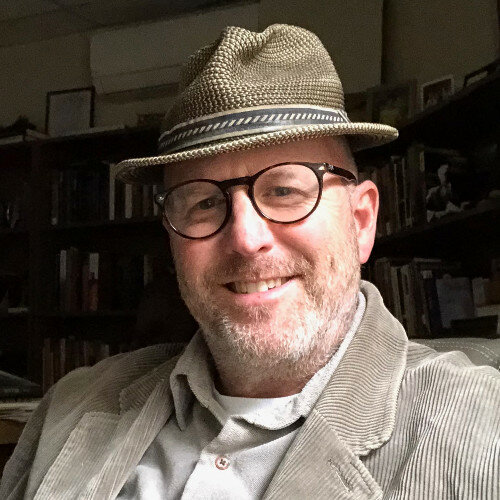
Rev. Dr. Tom Martinez, Desert Palm United Church of Christ
SUBMITTED PHOTO
By Rev. Dr. Tom Martinez | Senior Minister, Desert Palm United Church of Christ
In today’s culture war, we’re all victims of the age-old idea that manliness is primarily evidenced by controlling and repressing emotions. This was made clear by the reaction to Gus Walz’s open display of emotion during the Democratic National Convention.
The son of vice president hopeful, Gov. Tim Walz, Gus was overcome with feeling, and images of his crying quickly became a lightning rod for the cruelest ridicule. But what are we making fun of? A son’s love for his dad. Is that really deserving of the wave of cruelty it elicited? Or could it be an indication that at the dawn of the 21st century there is deep confusion as to what it means to be a man?
It’s easy to bully any sign of weakness. That’s why bullying is so rampant. But it’s far more challenging to grasp why such a beautiful moment quickly became weaponized.
Yes, it has a lot to do with the radical divide in the country. We’re like sharks in our ability to detect any hint of vulnerability, which we then pounce on like so many Great Whites. President Joe Biden shows his age or former President Donald J. Trump fumbles a question and everyone’s ready to pounce. It’s as if we’re all back in middle school, consumed by fear and the aggression that shields us from our humanity.
The truth is we’re all aging, we all fumble questions or fail at times to put our best foot forward. We’re imperfect, vulnerable creatures trying to find our way in the world. But attacking each other isn’t the answer. Instead, we need to step back and assess the ways in which our culture has socialized men to hide their feelings.
Women would have an easier time of it if more men were to begin to explore their masculinity with a wider range of ideals than the lone ranger mentality offered up by the likes of John Wayne, Clint Eastwood and Charles Bronson.
Wayne is often demonized for having made such a major contribution to the patriarchal ideal. And while the problem is, of course, bigger than Wayne, I find it fascinating that when he appeared before a group of veterans their reaction was to boo him. These were men who had experienced the harsh reality of combat, many of them propelled by the swaggering image of a fearless gunman out to get the bad guys. They had discovered that war is not glamorous or thrilling, but horrific and wounding.
Therapists like Edward Tick, who work with traumatized vets, know that the path toward healing involves a dismantling of the macho image of invulnerability. Tick has taken countless groups of veterans back to Vietnam, where they have the opportunity to process the trauma of war, and to thereby enlarge their frame of reference by which they understand what happened to them, what they did, what was done to them.
He frames this work in the symbolism of the hero’s journey, which begins with the patriarchal foundation of enculturation, then descends into the hell of trauma. This descent is an aspect of heroism that takes us beneath the middle-school mentality of invulnerability and cruelty. It requires a Christ-like willingness to enter the wilderness of the soul, to wrestle with our worst and better angels.
The great developmental psychologist Erik Erikson came to this country to escape Hitler. As a brilliant theorist, he couldn’t help but plumb the depths of fascism, asking what in the world made it possible for so many everyday Germans to throw their support behind a cruel demagogue.
How fascinating that his quest to understand what happened in Germany centered on the generational tensions between fathers and sons. He went on to articulate his insights in a book on Martin Luther, who famously struggled with his relationship with his father. Erikson understood that our love of the swaggering dictator is rooted in our repressed feelings toward authority, which are often experienced most directly in relation to our fathers, the traditional representatives of society’s hierarchical systems of power.
It’s no coincidence that today, everything from truth itself, to the mystery of gender, to whether the planet is warming is all up for grabs. During this great upheaval, we all long to be free, to have some modicum of power and agency.
The dangerous temptation is to simply identify a father figure to either worship or oppose. But collective lashing out against the right or left is merely that, a blind lashing out at daddy. The more radical response is to feel one’s way into one’s own power, to figure out why we’re here, and what it is that we are meant to do, which is often something far beyond the limited ideologies offered up by whatever cultural system we’re born into.
This isn’t to say that all enculturation is flawed. We need role models and mentors. We need spaces where we are tested and pushed and allowed to fail and succeed. This is no doubt why sports loom so large in the world. But the star athlete who beats his wife is far too common, as is the epidemic of domestic abuse in general.
Legions of men are trapped in an outdated ideal of toughness and control. Meanwhile advances in the social sciences are opening up the complexity of gender, social roles, questions of equality and the challenges associated with our ever-more complex and technologically daunting world. Again, the temptation is to go back to the Lone Ranger and leave it at that.
But songs like “Billy Don’t Be a Hero” and films like “Coming Home,” “Johnny Got His Gun,” “The Deerhunter” and “Born on the Fourth of July” all call into question the old ideal of masculine invincibility.
From what I’ve read, it appears Gus Walz is somewhere on the neuro-diversity spectrum, meaning he doesn’t process information like more mainstreamed young adults.
That alone should be reason for a certain sober restraint when it comes to judging his show of emotion. But rather than merely holding back out of compassion, I think we ought to marvel at what this extraordinary young man has to teach us. His response was real and honest and spontaneous, pure embodied love by a son for his dad.
Seems to me the world could use a little more young men like Gus.
Editor’s note: The Rev. Dr. Tom Martinez is the senior minister of Desert Palm United Church of Christ in Tempe. He can be reached at revtom@desertpalmucc.org. Reader reactions, pro or con, are welcomed at AzOpinions@iniusa.org.







